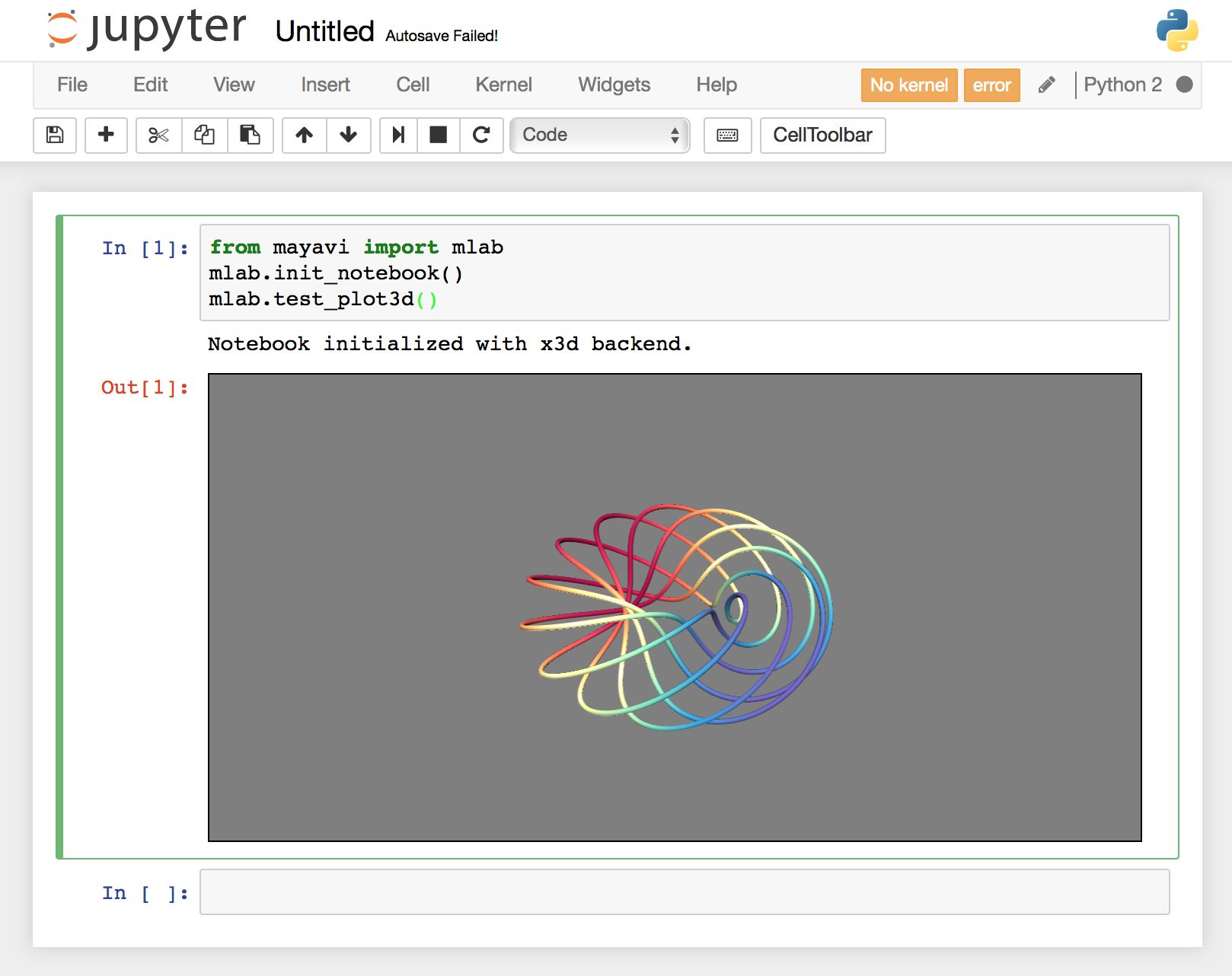Plot with Mayavi in Jupyter notebook on Docker for Mac¶
Last update: 14 January, 2017
Install Docker for Mac
Install Xquartz
Install socat:
$ brew install socatBuild docker image:
FROM jupyter/datascience-notebook MAINTAINER Taku Yoshioka <taku.yoshioka.4096@gmail.com> USER root RUN apt-get update && \ apt-get install -y \ libglu1-mesa RUN apt-get update && \ apt-get install -y \ libvtk5-dev RUN apt-get update && \ apt-get install -y \ mayavi2 RUN rm /bin/sh && ln -s /bin/bash /bin/sh USER jovyan ENV LIBGL_ALWAYS_INDIRECT 1 RUN source activate python2 && \ conda install -y mayavi && \ conda install -y -c conda-forge jupyter_contrib_nbextensions RUN source activate python2 && \ jupyter nbextension install --py mayavi --user
$ build -t jupyter-mayavi .Set indirect GLX flag to be used for Xquartz
$ defaults write org.macosforge.xquartz.X11 enable_iglx -bool true
Run Xquartz
Run socat
$ socat TCP-LISTEN:6000,reuseaddr,fork UNIX-CLIENT:\"$DISPLAY\"
Run docker container
$ ip=$(ifconfig en0 | grep inet | awk '$1=="inet" {print $2}') $ docker run --rm -p 9000:8888 -e DISPLAY=$ip:0 --name test jupyter-mayavi
Launch a notebook with Python2 kernel
Run the following commands in the notebook:
from mayavi import mlab mlab.init_notebook() mlab.test_plot3d()
